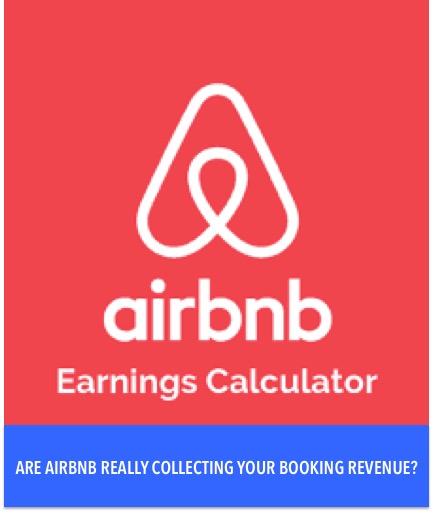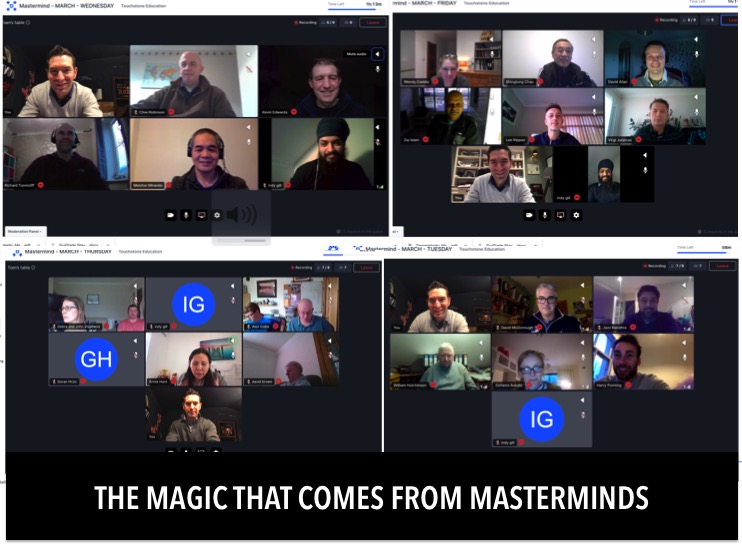Psychologists will tell you that what really makes us happy, what really gives us confidence is seeing the evidence of progress.
So, let’s not miss the opportunity that comes with an end of quarter review. As property entrepreneurs it’s essential for our sanity and motivation to acknowledge and celebrate our progress. Some of our goals are so big they may take years to achieve, but we CAN make massive progress every 90 days.
Breaking down your goals into 90 day increments is good for focus and motivation. By chunking down your goals into smaller steps you can focus more directly on what’s right in front of you. Not only that, it makes it a whole lot easier to track and measure progress.
You can make tangible progress week over week and then by taking time to reflect on the quarter you can measure that tangible progress to give yourself a sense of movement, satisfaction and from that, momentum. Reflecting on the quarter will also highlight a goldmine of learns that you’ll want to take forwards with you.
Reviewing each quarter is about investing past experience into future preparation and focus – ie your past decisions, successes, failures, lessons. That’s where the good stuff comes from.
HOW TO REVIEW YOUR LAST 90 DAYS
Here are a selection of questions, I learned from Peter Voogd, that I’ve been using for a few years now to help reflect on the previous quarter and carry momentum into the next. Use these prompt questions to help you reflect and free flow write for 30 mins or so each quarter about the previous 90 days. [By the way, I use the accountability of writing this post to get my own review done and it only takes about 30 mins].
Section #1 – OVERVIEW
- What went well, what didn’t?
- When was I in my zone, when wasn’t I?
- When was I at my emotional energy peak?
- What caused me peace of mind?
- What frustrated me?
- Did I do what I said I was going to do?
- What systems have I put in place?
Section #2 – PSYCHOLOGICAL
- What have been my biggest breakthroughs?
- What have been my biggest frustrations?
- What have been my mind-shifts?
- What have been my biggest disappointments?
Section #3 – TACTICS
This section looks at what were my top 5 wins from last quarter: financial, family, adventure…?
Getting down to business metrics ask yourself:
- Did I hit my business income goal last quarter?
- What were the top three marketing campaigns or sources of income last month?
- What were my top income producing activities?
- What are the biggest ways I’ll be producing income this next month?
- How did I add value to the marketplace, could I have added more?
These will likely be related to your highest values but only you will know.
- Did I leverage technology?
- Did I maximise my reach?
- What will exponentially grow my reach this next quarter?
- What did I do to stay adventurous and feel fully alive?
To help keep you going with the nitty gritty march of each day it’s important to mix it with the things that energise you. Whilst we can’t have meals out or mini breaks just yet, hopefully that’s not too far away. But in the meantime there are still plenty of things you can access from home or on your doorstep as a fun treat. Whatever it is, choose something and schedule it.
If you aren’t consciously making a decision to put things in your diary that will keep you alive and vibrant, you will become complacent.
Section #4 – RELATIONSHIPS
I love this one:
- Who did I connect with and reach out to last quarter?
- Did I take care of my current relationships and did I reach out to people who can cut my learning curve in half- i.e. people who I can partner with in some way that’s relevant to your business?
- Did I leverage partnerships?
Section #5 – TEAM
Think about questions that will help with your team review:
- How was my team engagement?
- How was my speed of communication?
- What feedback can I give them?
- What do they need in terms of skill development?
- Am I consistently demonstrating the attributes I want my team to embody?
Section #6 – LEGACY
- What did I work on that was legacy focused? In other words something that you work on now but won’t get paid until long into the future, or something that you don’t reap the benefits for until way later, ie creating things that you value but that you get paid 6 months or more down the road. Note that if you just do this kind of work for the rewards/benefits you will lose steam, it’s important to engage in legacy work for other reasons, for something bigger than you. As a side example, part of my family legacy work the last few years, and ongoing, is taking conscious time with my boys to teach them one key life value each month.
Peter Voogd recommends spending 80% of your time on profit making activity, creating systems etc that makes sure you have the money coming in for you and your family now. Then 20% of your time on legacy focused things. Eventually when you have built the business you want you can switch focus to investing 80% of your time on the legacy side of things. Isn’t that an exciting prospect? To spend 80% of your time on something that helps a cause you believe in or adds value to the world in some way, and not worry whether it pays you or not.
Conclusion
I challenge you to invest 30 mins each quarter to do this. WHY? Firstly, so that you can give yourself the gift of seeing evidence of progress. Secondly, because high achievers always ask better questions, and they are always investing their past mistakes/lessons into their future preparation.
Looking back over the last quarter, what is something that you initiated and achieved, that has made you the proudest?




